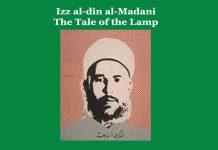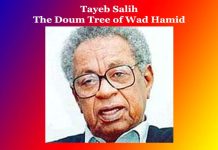Dr Pratibha Roy | The Certificate of Honor | An Analytical Study
Dr Pratibha Roy | The Certificate of Honor | An Analytical Study
Dr Pratibha Roy | The Certificate of Honor | An Analytical Study
‘The Certificate of Honour’ (Manpatra) is an Indian Oriya short story written by Dr Pratibha Roy. It is an ironic story. Unappreciated honour is the main theme of the story. In the story, the author has portrayed the state of a sweeper who was given a certificate of honour in the reorganization of his service.
The main character of the story is Pitei Nayak. He is a sweeper. One day he got a letter and being illiterate he took it to a babu (a literate businessman) and asked him to read the letter for him. He read the letter and made him know that Pitei was selected as one of the best sweepers of the town and hence he would be given a Certificate of Honour next Saturday. He fell into a puzzle regarding the honour that they would bestow on him. On the appointed day, he went there in a tidy dress. He sat on one of the chairs and was waiting for the function. The meeting ran in English. He did not know English and thought that if his name was called out in English then he would not be able to receive the prize as he did not know English. But in time when his turn came they called out his name in Oriya and he was given a garland of flowers and a piece of paper. He did not know what the piece of paper meant. He thought that a piece of paper might be a cheque. He, coming back home, thought that he would be able to repair the wall of his house with the money he would get by means of the cheque. He took it to some educated men and came to know that it was not a cheque but a certificate of honour. He should bind it in a frame and should keep it hanging in the drawing room. But as he had not a drawing-room he took it to some offices to keep it there in safety. But none kept it. Then he went to another office, seeing the photo of Mahatma Gandhi and some others on the wall, he requested the officers to keep his Certificate of honour there as he had no room to put it. But they also turned him out. Being disappointed he came back home. The next day he went to a hotel and gave the certificate of honour to the hand of the ward boy and requested him to keep it hanging on the wall of the hotel and without delay, he turned back thinking that the boy might return it.
P. Nayak is the main character of the story. He is illiterate and ignorant of what is called honour. The certificate of honour given to him is an irony as the certificate came into no value for him. Instead, it seemed to be a burden on the head of the sweeper.
In narrating the story the author has employed the Objective Method with skill. In this method, an author keeps himself away from his story and delineates his story objectively.
The story, in Structure, is a perfect one. It bears visibly all the stages of a good short story. The opening is direct. In the opening, the storyteller introduces Pitei Nayak, his principal character.
The Setting of the story is consistent with the events and situation. The author gives a good description of his main character along with the environment of his event.
The Dialogue employed in the story is very logical as he uses them sparingly but all the dialogues have taken his story ahead and unfolded the inner nature and motives of his characters.
The Philosophy of Life is also found in the story. The author has not expressed it directly but leaves it to be drawn out by his readers after the reading of it that the poor are always neglected by the rich. The certificate of honour cannot bring in honour to them.
The Language of the story is very simple as it is characterized by the use of concrete and formal (not unfamiliar) words and phrases and it is free from poetic imagery and much emotional expression.
All the Qualities of a good short story as —unity of purpose, brevity, spontaneity and universality are present in this short story. The brevity which is said to be the soul of a short story is also maintained throughout the story as all the component elements of a good short story are employed in the story with possible economy without causing any harm to the perfectness of the story. Thus the universality is gained by means of the reliable representation of the theme and event. The story begins and ends with a spontaneous logical order and the author seems not to use any force in bringing about the end of his story through proper stages.
It is a short story of ideal Length.
As the entire component elements along with the required qualities of a good short story are present in it, in a logical order, so it may be called that it is a short story of the first grade. 0 0 0. Dr Pratibha Roy | The Certificate of Honor | An Analytical Stud
Read More: Leo Tolstoy’s The Imp and the Peasant’s Bread-Analytical Study
Dr Pratibha Roy | The Certificate of Honor | An Analytical Study
N. B. This article entitled ‘Dr Pratibha Roy | The Certificate of Honor | An Analytical Studyy’ originally belongs to the book ‘World Short Story Criticism‘ by Menonim Menonimus. Dr Pratibha Roy | The Certificate of Honor | An Analytical Study
Books of Literary Criticism by M. Menonimus:
- World Short Story Criticism
- World Poetry Criticism
- World Drama Criticism
- World Novel Criticism
- World Essay Criticism
- Indian English Poetry Criticism
- Indian English Poets and Poetry Chief Features
- Emily Dickinson’s Poetry-A Thematic Study
- Walt Whitman’s Poetry-A Thematic Study
- Critical Essays on English Poetry
- Tawfiq al-Hakim’s Novel: Return of the Spirit-An Analytical Study
- Tawfiq al-Hakim’s Novel: ‘Yawmiyyat Naib Fil Arayaf’-An Analytical Study
- Analytical Studies of Some Arabic Short Stories
- A Brief History of Arabic Literature: Pre-Islamic Period …
Books on Linguistics by M. Menonimus:
- A Brief History of the English Language
- Essays on Linguistics
- My Imageries
- Felicitous Expression: Some Examples
- Learners’ English Dictionary
Related Searches:
- Short Stroy Criticism
- The Indian English Short Story
- Individual and Society …
- ‘Deliverance’ by Premchand Analysis
- Summary of Rabindranath Tagore’s ‘The Exercise Book
- Exercise Book
- The Cabuliwallah
- Atulananda Goswami Biogrpahy
- Lord Halifax’s Ghost Books
- Lord Halifax
- Bimal Mitra
- Bimal Mitra-IMDb
- What Really Happened
- Books of Banaphool
- Post-Googlism and Other Stories
- T Natarajan
- Pratibha Roy …











